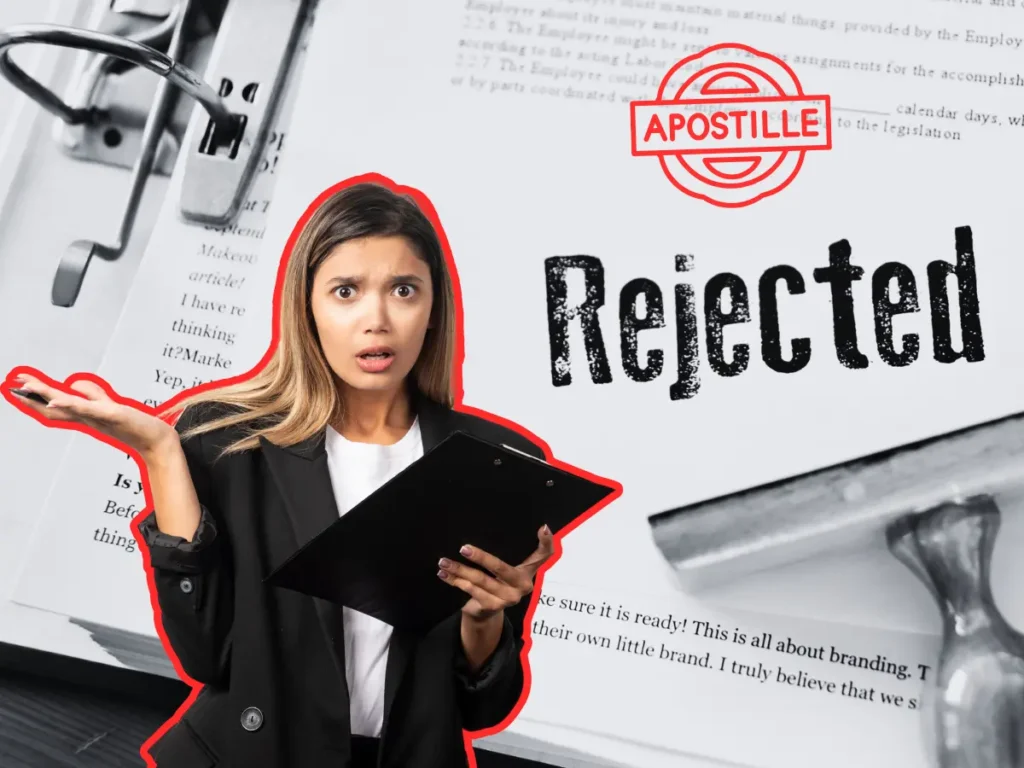Top 5 Common Mistakes When Requesting an Apostille (and How to Avoid Them)

When you’re planning to use a U.S. document abroad—whether it’s a birth certificate, power of attorney, or academic transcript—getting it properly authenticated is key. Depending on the country, your document may require either an apostille (if the country is part of the Hague Convention) or a consular legalization.
At Say Notary, we help clients across the U.S. navigate this process, regardless of whether their destination country is part of the Hague Convention or not. To help you avoid delays, rejections, or repeat submissions, here are the top 5 mistakes people make when requesting an apostille or legalization—and how to avoid them.
❌ 1. Submitting the Wrong Type of Document
Why it’s a problem:
Apostilles and legalizations can only be issued on original or certified copies of documents. Submitting a scanned copy, a photocopy, or an unauthorized printout will automatically disqualify your application.
Common examples:
Birth certificates must be certified by the state’s vital records office, not just a hospital record.
Diplomas must come from the registrar’s office, not from a scanned PDF or personal copy.
Notarized documents must be properly signed, dated, and stamped by a commissioned notary.
✅ How to avoid it:
Ensure you’re using the correct document version. If you’re unsure whether your document qualifies, visit our [Apostille & Legalizations] page or contact us for a free review before submission.
❌ 2. Not Verifying the Destination Country’s Requirements
Why it’s a problem:
Not all countries accept an apostille. If the destination country is not a member of the Hague Apostille Convention, your document must go through additional steps, including authentication by the U.S. Department of State and legalization by the foreign consulate.
✅ How to avoid it:
Before starting the process, always check if your destination country is a Hague Convention member. This determines whether your document needs:
Just an apostille (1-step process), or
Authentication + legalization (2 or 3-step process)
Still unsure? Our [Apostille & Legalizations] page breaks down both scenarios.
❌ 3. Skipping Required Notarization
Why it’s a problem:
Some documents must be notarized before they can be apostilled, especially if they are not government-issued. Submitting a document without the necessary notarization will result in rejection.
✅ How to avoid it:
If your document is a letter, affidavit, authorization, or other private document, make sure it is properly notarized by a licensed notary. We offer both mobile and remote notarization to make this easy. Visit our [Apostille & Legalizations] page to learn which documents require notarization.
❌ 4. Errors in the Document or Application
Why it’s a problem:
Documents with spelling mistakes, incorrect dates, missing signatures, or incomplete notarizations can be denied without refund. Even one missing page or a wrong name can invalidate the entire process.
✅ How to avoid it:
Review your documents carefully before submission. If your document has been translated, ensure it was done by a certified translator and that the certification itself is also notarized if required. At Say Notary, we offer a free document check with every apostille request to catch errors early. Check out our [Apostille & Legalizations] page for more tips.
❌ 5. Waiting Until the Last Minute
Why it’s a problem:
The apostille/legalization process can take anywhere from a few days to several weeks, depending on your state, the type of document, and the destination country. Waiting too long can disrupt travel plans, business deals, or immigration filings.
✅ How to avoid it:
Plan ahead and give yourself enough time. If you’re facing a tight deadline, contact us about expedited options. We handle urgent requests every week and can guide you through the fastest legal route. Learn more on our [Apostille & Legalizations] page.
✅ Final Thoughts: Apostille or Legalization? We’ve Got You Covered.
No matter where your document is headed—Spain, Mexico, the UAE, or a country outside the Hague Convention—Say Notary is ready to assist. We serve clients nationwide with fast, bilingual support and deep expertise in international document authentication.
Need help figuring out the right process?
👉 Start by visiting our [Apostille & Legalizations] page or contact us for a free consultation.
